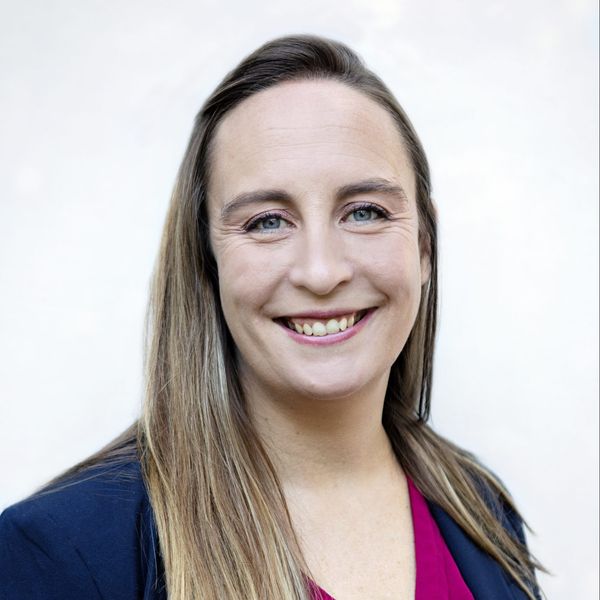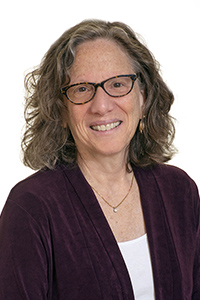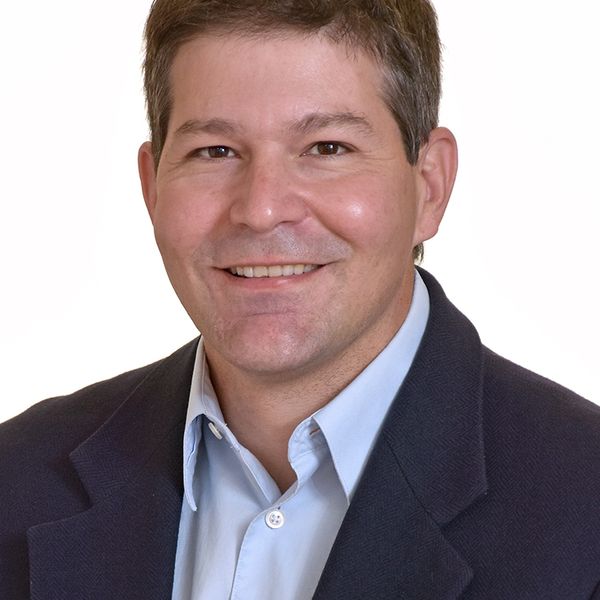Congratulations to Our 2025 GMS Educator and Mentor Awardees!
Each year, the Boston University Chobanian & Avedisian School of Medicine honors Graduate Medical Sciences faculty who deliver exceptional education and mentorship to graduate students in masters and doctoral programs. The awards are granted based on recommendations from across GMS programs.
This year, GMS is pleased to share that Elizabeth Duffy, MA, and Barbara Schreiber, PhD, have been awarded the 2024 Educator of the Year awards, and that Neil Ganem, PhD, has been awarded the Excellence in Research Mentorship (GMS) award. Read more about the awardees below:
 Elizabeth Duffy, MA
Elizabeth Duffy, MA
GMS Educator of the Year (Masters Programs)
Professor Duffy serves as director of the Master of Science in Pathology Laboratory Sciences program at GMS, as well as the director of Boston Medical Center’s Laboratory and Biorepository Research Services Core.
She is an assistant professor of pathology & laboratory medicine.
How long have you been at Boston University? What work do you do in GMS?
I was first hired by [Daniel Remick, MD] as his lab manager back in October 2006. I worked as that until 2015, spent a year at Boston Children’s Hospital, and then was recruited back to be faculty in November 2016. So, I think of it as almost 19 years, but there was a little break there.
Can you please tell me a bit about your research?
I started in inflammation but transitioned in 2010 to Biospecimen Science with [Christopher Andry, MPhil, PhD]. We had a focus on cancer, particularly prostate cancer, procuring specimens and controlling for pre-analytical variables to enhance downstream applications. Since the pandemic, my lab has focused on COVID vaccination and infection work and has also just recently partnered with the new Clinical Research Unit at BMC, helping to manage lab samples for clinical trials.
What was your initial reaction to finding out you've won an Educator of the Year award?
Surprise for sure. We have so many great educators on this campus, and I look to so many as mentors. I was truly honored.
What does being an educator mean to you?
I love sharing my passion for science. The students we have here keep me from getting jaded. They have such bright hope for the future, and I love to be a part of that.
Can you please tell me a bit about your teaching style/philosophy?
I believe strongly in a having a healthy amount of discussion. I also pepper all of my lectures with anecdotes to try to make some of the material hold more value for the students. Not all classes lend themselves to discussion, but I do try to make it slightly more interesting. I’m lucky that at this stage in their careers that for the most part, the students are in the class because they want to be. It allows for a more engaging experience.
Can you please tell me one of your favorite parts about mentoring students within GMS?
I love to hear about what brings them to BU. We have such a wide variety of students from all backgrounds. I think it is a huge strength to have such varied backgrounds. I get to learn just as much from them as they do me when they share their culture and how a topic I’m teaching about may intersect with them.
Is there anything else you'd like to share?
GMS has created such a welcoming community for students and faculty, and I consider myself extremely lucky to be among its ranks.

Barbara Schreiber, PhD
GMS Educator of the Year (PhD Programs)
Dr. Schreiber is an associate professor of biochemistry & cell biology, GMS assistant dean of alumni affairs and past director of the Program in Biomedical Sciences (PiBS).
How long have you been at Boston University? What work do you do in GMS?
BU and I go back a long way. I earned my PhD in the Department of Microbiology at a time when GMS didn’t exist! I then left BU for my first post-doc at University Hospital, which had a door connecting it to BU; i.e., I didn’t stray very far. I then came back to the medical school for a post-doc in the Department of Biochemistry. I’ve never left!
The work I do includes “teaching” in a very broad sense. I teach students basic science (biochemistry) as well as so-called “professional development” that includes imparting some of the skills required of a PhD-trained scientist outside of the traditional science coursework. In addition, I’m involved with keeping track of our incredible alumni and drawing on their expertise to help us enable our graduates to secure meaningful employment.
Can you please tell me a bit about your research?
I no longer run a research lab, but my work was seeking to understand inflammatory processes that lead to the vascular disease, atherosclerosis. I have also been involved with researching best practices related to professional development for our doctoral students and postdoctoral researchers. Starting with an NIH-funded grant entitled “BU’s BEST [Broadening Experiences in Scientific Training],” we developed programming to enable our trainees to build the skills required of the biomedical workforce. We use workforce data to inform our curriculum and the trainees’ career exploration and skill building. We also launched the TOTAL (Training Opportunities to Augment Learning), a digital app to connect our biomedical trainees to career and professional development events happening at BU and across multiple Boston-based partner institutions.
What was your initial reaction to finding out you've won an Educator of the Year award?
What does being an educator mean to you?
As I said when I accepted this honor, I really shouldn’t get paid to do this as it isn’t work, it’s my passion! Seeing students learn and progress through their programs, earn their degrees and then turn that learning into meaningful careers is what I love!
Can you please tell me a bit about your teaching style/philosophy?
That’s a tough question, as it really depends upon the class; some are conducive to discussion-based learning while others are lecture-based classes. In all cases, we try to gear the learning to the students’ interests, such as biomedical research vs. dentistry.
Can you please tell me one of your favorite parts about mentoring students within GMS?
As stated above, seeing our students go out into the world, applying what they’ve learned to better our world brings me joy. As assistant dean of alumni for GMS, I have the pleasure of tracking our PhD alumni and calling upon them to “give back,” such as by serving on panel discussions for our trainees to learn about the variety of career options open to them with a PhD in the biomedical sciences. It’s so gratifying to hear how our students are changing the world when they go out into the workforce in a host of capacities, including some jobs I never heard of when I was studying!
 Neil Ganem, PhD
Neil Ganem, PhD
Excellence in Research Mentorship, GMS
Dr. Ganem’s lab research uses a combination of high-resolution microscopy, genome-wide RNAi screening, cell biology, and bioinformatics to study the causes and consequences of genome instability in human cancer.
He is an associate professor of pharmacology, physiology & biophysics and medicine.
How long have you been at Boston University? What work do you do in GMS?
My lab has been studying how normal cells acquire the genetic changes that turn them into cancer cells since 2013.
Can you please tell me a bit about your research?
One major difference between normal cells and cancer cells is that cancer cells tend to be aneuploid, which means they possess an abnormal number of chromosomes (not the exact 23 pairs that exist in normal cells). One major focus of my lab is to develop strategies/drugs that selectively kill cells with abnormal numbers of chromosomes (i.e. cancer cells) while sparing cells with normal numbers of chromosomes (i.e. healthy cells).
What was your initial reaction to finding out you've won an Educator of the Year award?
Of course I was honored, but I also felt some guilt because mentoring for me has been very easy due to the exceptional students I have had over the years. I was also very appreciative that several of my students took the time and effort to write nomination letters on my behalf.
What does being an educator mean to you?
It’s the most important part of my job, and I treat it that way.
Can you please tell me a bit about your mentorship style/philosophy?
I have a hands-off philosophy and encourage students to think independently and drive their own projects. The best experiments are the ones that students conceive and perform all on their own.
Can you please tell me one of your favorite parts about mentoring students within GMS?
While I get older and older, the students who join my lab stay the same age. They are always full of energy and ideas. I feel like their youth keep me energized and motivated!
Congratulations to Professor Duffy, Dr. Schreiber, and Dr. Ganem! Learn more about all 2025 faculty and staff award winners from across Chobanian & Avedisian School of Medicine here.
View all posts
 Elizabeth Duffy, MA
Elizabeth Duffy, MA
 Neil Ganem, PhD
Neil Ganem, PhD